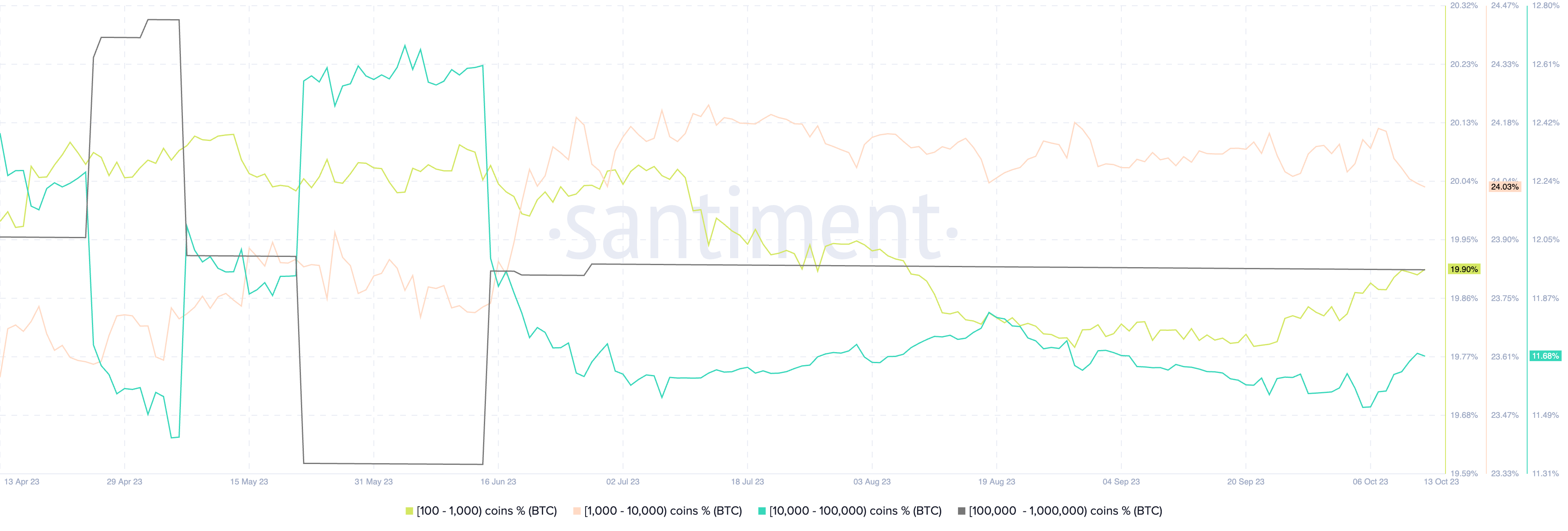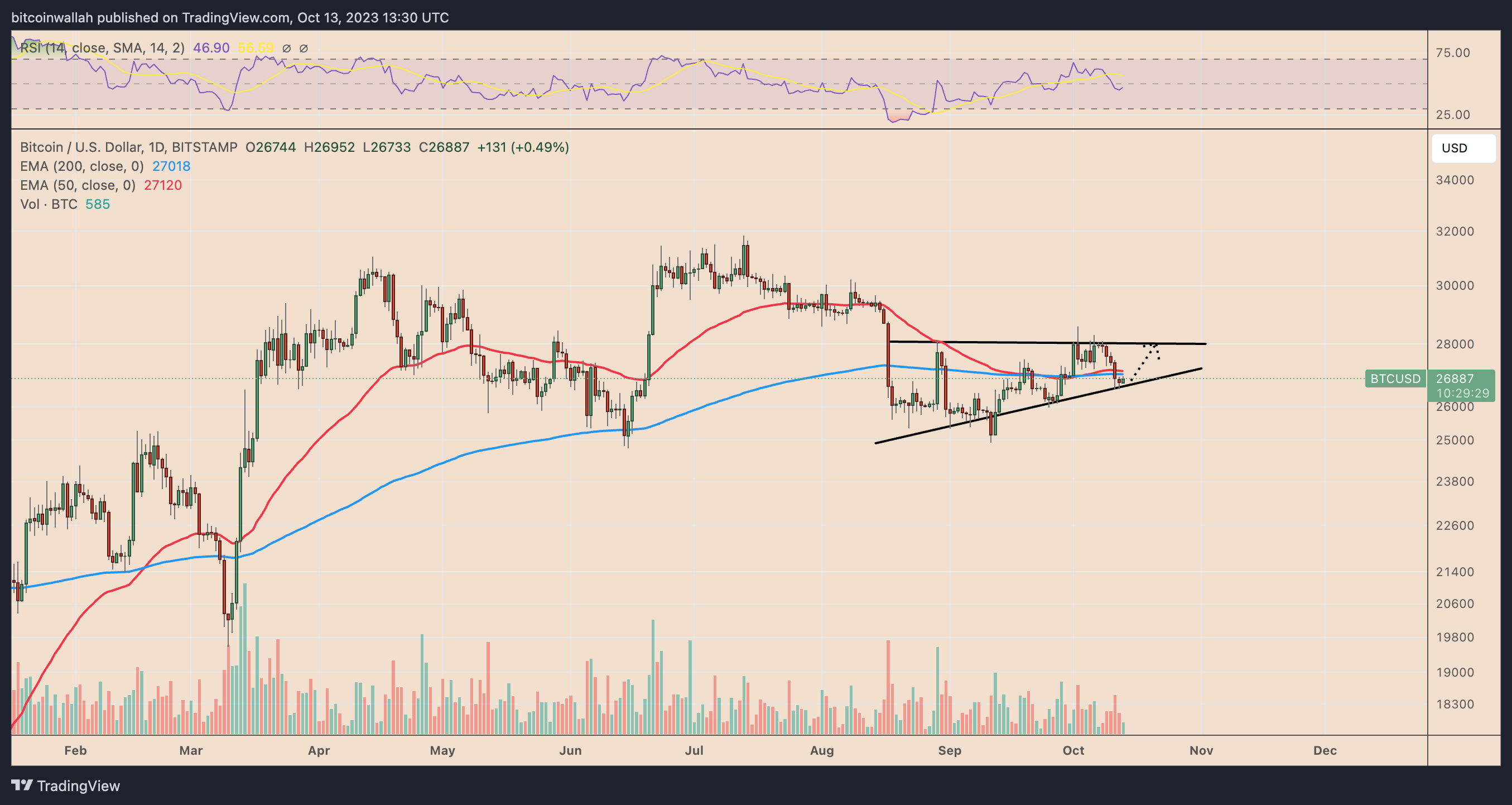Bitcoin (BTC) price is oscillating within an ascending channel, bounded by a resistance at $28,000 and a rising support at approximately $26,750.
The flattening BTC price action has accompanied declining volumes and volatility, underscoring a growing bias conflict among traders.
Bitcoin network activity plummets
The duration of Bitcoin’s consolidation coincides with a massive drop in its deposits, withdrawals and overall transactions. Notably, all these metrics increased in May due to the hype around Bitcoin Ordinals, only to crash significantly in September.

“This suggests that the Bitcoin network activity has decreased,” argued MAC_D, on-chain data analyst at CryptoQuant, adding:
“This happened because there were fewer new investments coming into the crypto market, resulting in less liquidity and therefore less price volatility.”
Bitcoin ETF hopes vs. higher-rate worries
Bitcoin’s consolidation period appears on the heels of two conflicting market catalysts: hopes for the approval of a Bitcoin exchange-traded fund (ETF) in the United States vs. worries about the U.S. Federal Reserve’s “higher-for-longer” interest rate strategy.
Analysts argue that a Bitcoin ETF approval would bring $600 billion worth of demand to the market — a boon for the BTC price. On the other hand, stickier inflation raises the potential of the Fed to keep rates higher in the future, which, in turn, could hurt riskier assets, including BTC.
The S&P 500, Gold, Bitcoin and EURUSD after the CPI Print: pic.twitter.com/AO4FWHpv0Z
— TradingView (@tradingview) October 13, 2022
A former BlackRock director asserted that the U.S. Securities and Exchange Commission will approve a Bitcoin ETF by the end of Q1 2024.
BTC accumulation continues
Bitcoin supply across whale and institutional addresses has increased entering October, suggesting the cryptocurrency’s richest investors have been accumulating off-market via over-the-counter desks.
For instance, the supply held by Bitcoin addresses with a 10,000–100,000 BTC balance (the teal wave) has jumped by over 1% from its Oct. 5 low.

The jump appears as the cohort absorbs drops in the supply held by Bitcoin addresses with a 1,000-10,000 BTC balance (the orange wave). On the other hand, the supply held by the 100–1,000 BTC balance cohort (the green wave) has risen.
Bitcoin technical analysis shows a 40% decline setup
From a technical perspective, Bitcoin eyes a rebound toward $28,000 after showing signs of stabilizing around $26,750. The short-term upside outlook is purely based on BTC’s price fluctuations inside its prevailing ascending triangle, as shown below.

A longer-timeframe scenario shows Bitcoin treading inside a broader ascending channel pattern. Therefore, a rebound from the current support area (the red bar) could have BTC price climb toward $36,000 in late 2023 or early 2024.

However, the ascending channel appears like a rising wedge, a bearish reversal pattern. A rising wedge resolves after the price breaks below its lower trendline and falls by as much as the pattern’s maximum height.
Related: Inflation and war impact markets, but Paul Tudor Jones says, ‘I love Bitcoin and gold’
Therefore, If BTC falls below the channel’s lower trendline, Bitcoin’s price may decline by as much as 40% to $15,650 in 2023 or Q12024.
This article does not contain investment advice or recommendations. Every investment and trading move involves risk, and readers should conduct their own research when making a decision.





